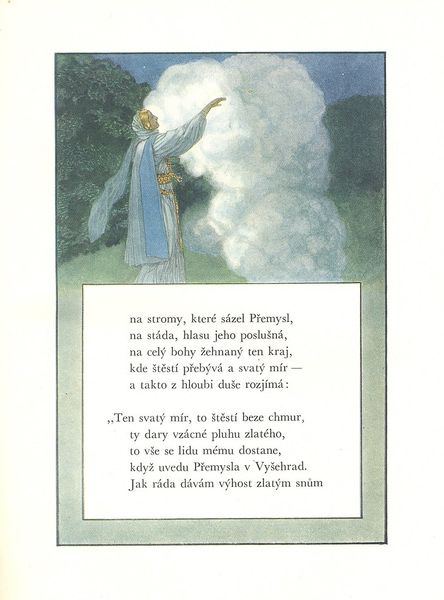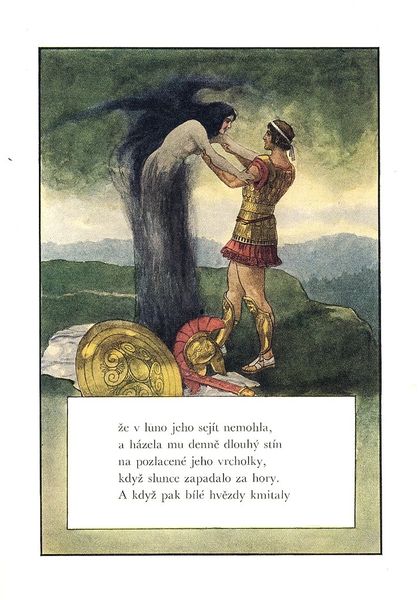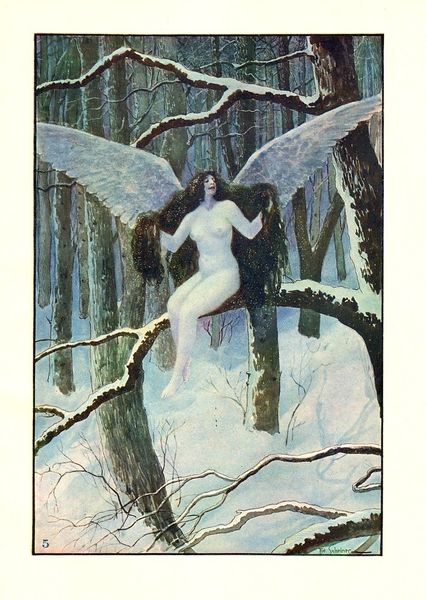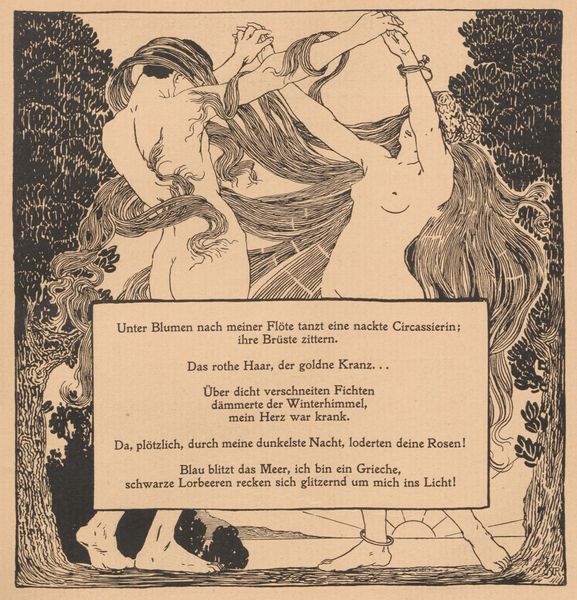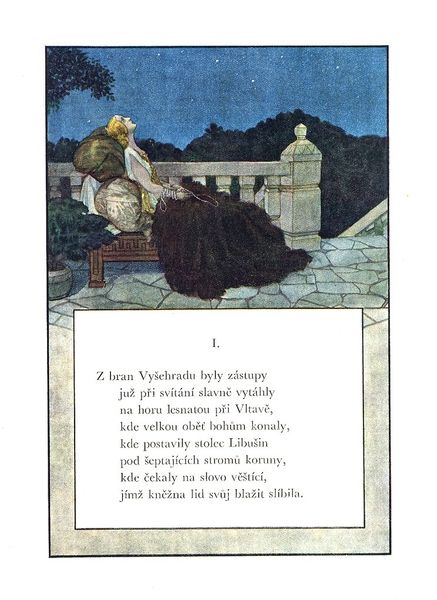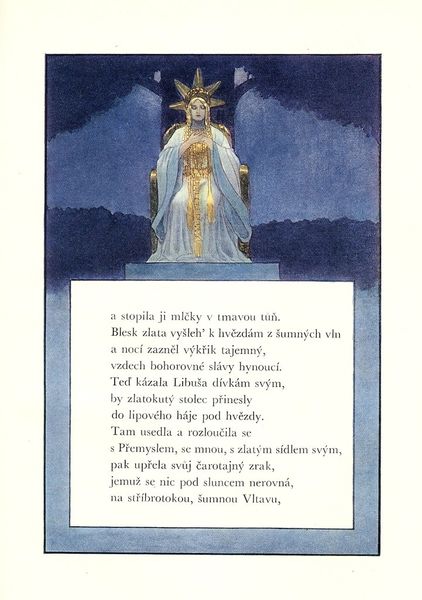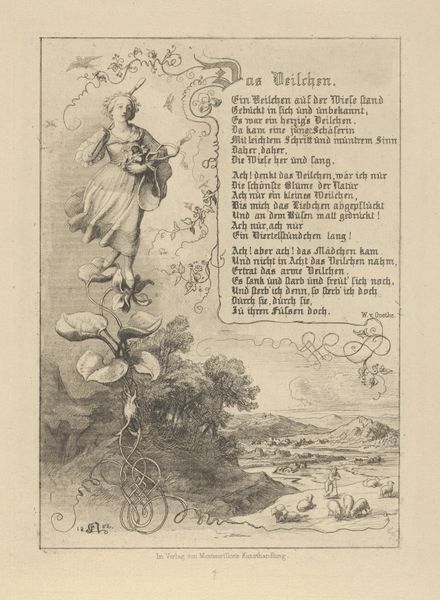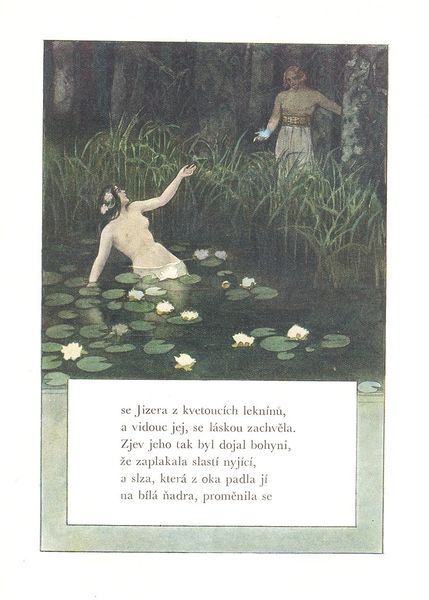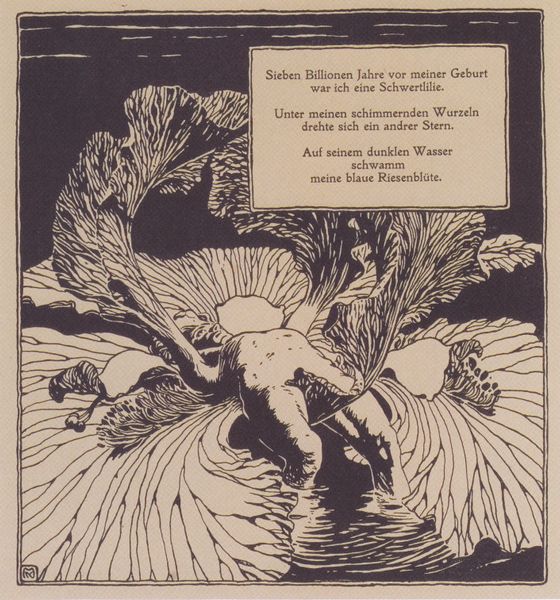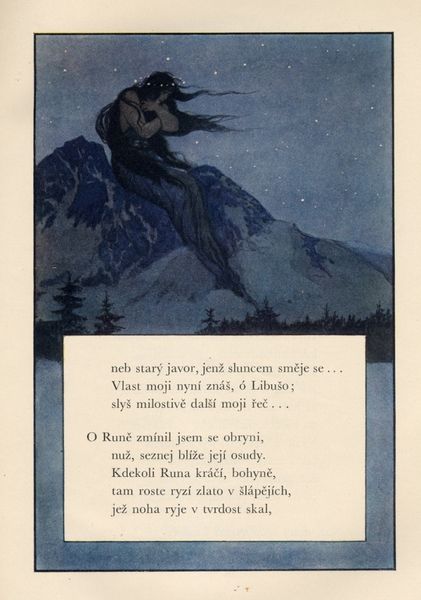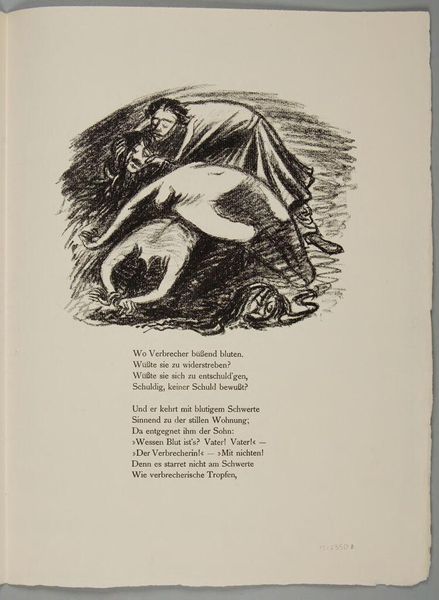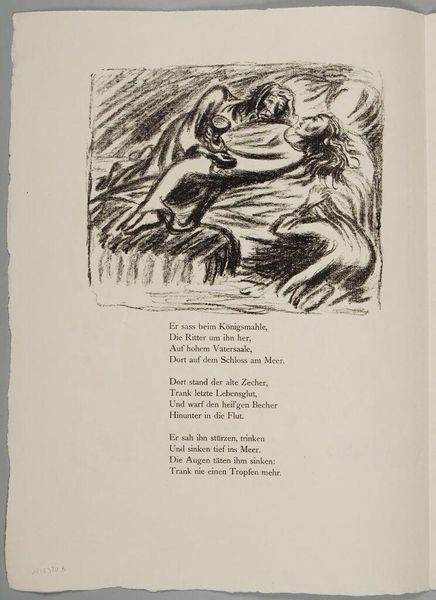
painting, watercolor
#
child-oriented illustration
#
quirky illustration
#
narrative illustration
#
page thumbnail
#
painting
#
traditional media
#
landscape
#
figuration
#
personal sketchbook
#
watercolor
#
illustrative and welcoming imagery
#
symbolism
#
watercolour illustration
#
storyboard and sketchbook work
#
cartoon carciture
#
erotic-art
Copyright: Public domain
Editor: So, here we have Artuš Scheiner’s “Illustration for Vyšehrad,” likely a watercolor piece, though its date remains unknown. I’m really struck by its storybook quality, like something plucked straight out of a Czech fairy tale. The figure seems part nymph, part angel. How do you read it? Curator: That “storybook quality” speaks volumes. Consider the context: late 19th, early 20th century. There’s a burgeoning interest in folklore and national identity, and visual art gets roped into promoting those ideas. How do we use images to define “us” versus “them”? Is this figure a symbol of Czech freedom, for example? Or perhaps it’s about the spiritual connection to the land. What about the framing of the text as central? Does that invite literacy, almost instructing the reader? Editor: That's a really good point, especially when you place it into a bigger social narrative. I never thought about the image and text in that way. It does almost ask the audience to consider these topics from an informed point of view, as though you are in the midst of studying in a library! Curator: And that text isn’t just words, right? It carries weight. Scheiner isn’t just illustrating *any* story; he's tapping into well-known myths connected to the place in the title. If this image becomes iconic, is it reinforcing certain ideas about Vyšehrad? What would a critical reading of those ideas uncover about Czech culture? It also might connect to the lack of clarity of the work: where and for whom was it published? That context also contributes to understanding the cultural role of art like this. Editor: This makes me realize how loaded even seemingly whimsical illustrations can be! Thanks for unveiling the broader historical dialogue embedded here. I'll definitely consider that the next time I come across similar illustrations. Curator: Precisely. Art never exists in a vacuum! Examining the power dynamics at play in how images are used is really how we connect to history in a visual sense.
Comments
No comments
Be the first to comment and join the conversation on the ultimate creative platform.
